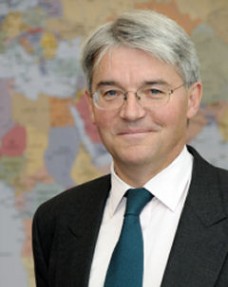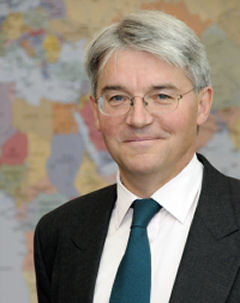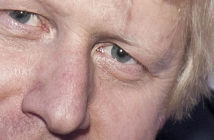
Andrew Mitchell. Photograph courtesy of the UK Government
The first is from the Times. Mitchell, it claims, had two rather pleasant outings on the day he described as ‘long and hard day’ when he had the now infamous incident with police officers in Downing Street. At lunchtime, the Chief Whip visited the very glamorous and expensive Cinnamon Club. Then, after Mitchell rode off from the Downing Street altercation, he dined at the equally exclusive and plush Carlton club. It’s not most people’s idea of a long or a hard day.
The second story comes from the Telegraph, which has obtained the official police log of the incident. The document appears to confirm that Andrew Mitchell called the officers ‘plebs’, something he has not admitted to.
The concerns raised by the latter revelation is nicely summed up by John Tully, chairman of the Metropolitan Police Federation: ‘Clearly Mr Mitchell is denying using certain words, effectively now impugning the integrity of the police officers. I think that is very serious.’
But it’s not the first time that the cabinet minister’s word has been called into question.
Last year, the leading international NGO Human Rights Watch launched an unprecedented attackon the then International Development Secretary. It accused him of ‘misleading’ and ‘disingenuous’ conduct.
This time it wasn’t over a heat-of-the-moment outburst while navigating his push-bike through the gates of Downing Street – but during a considered interview on BBC Newsnight. And this time the issue could not have been more serious: allegations of grave human rights abuses and misuse of British tax-payers money.
It followed a joint under-cover investigation by the Bureau and Newsnight into the use of international aid in Ethiopia. It revealed how whole communities were denied aid because of their political beliefs. It was a story of oppression, torture and rape; well documented evidence and first-hand testimony gathered on the ground.
Andrew Mitchell’s response was to dismiss the findings as unfounded. He claimed his officials had conducted an investigation in the field into such allegations and given the Ethiopian government a clean bill of health.
He was, in fact, referring to a desk-study compiled in an office, which found areas of serious concern and recommended further field studies be undertaken.
It was this that angered Human Rights Watch – to the point that they accused him of ‘disingenuous conduct’. Carefully chosen words, look it up in the dictionary: ‘Artful, cunning, deceitful, designing, dishonest, duplicitous, feigned, guileful, insidious, insincere, shifty, sly, two-faced, uncandid, underhanded, unfair, wily’.
Mr Mitchell was offered the chance to answer the points raised by Human Rights Watch, and to explain his reasoning for making seemingly misleading and disingenuous statements on national television. But his response was glib and patronising. A few paragraphs of little substance: a blanket denial asserting that the British Government doesn’t agree.
Since then the Bureau has submitted numerous Freedom of Information requests to the Department for International Development to try and get to the root of the issue – to see the evidence he had to make his claim. To ask the question – was Andrew Mitchell being deliberately misleading when he challenged the veracity of the Bureau’s findings?
All requests have so far been denied on the grounds of cost or that the information would prejudice the relations between the United Kingdom and Ethiopia.
We are still pursing the issue, but are not holding our breath.
The irony is that Andrew Mitchell’s undoing may not be over a matter of great national importance like evidence of torture and human rights abuses in the third world, but an unseemly outburst over a bicycle. The mistake he has made is that this time he has picked a fight with the wrong opponent. It’s easier to dismiss journalists or the likes of Human Rights Watch – but you question the word of the police at your peril.
Perhaps now he will be weighed and measured. And possibly be found wanting.
Written by Angus Stickler




